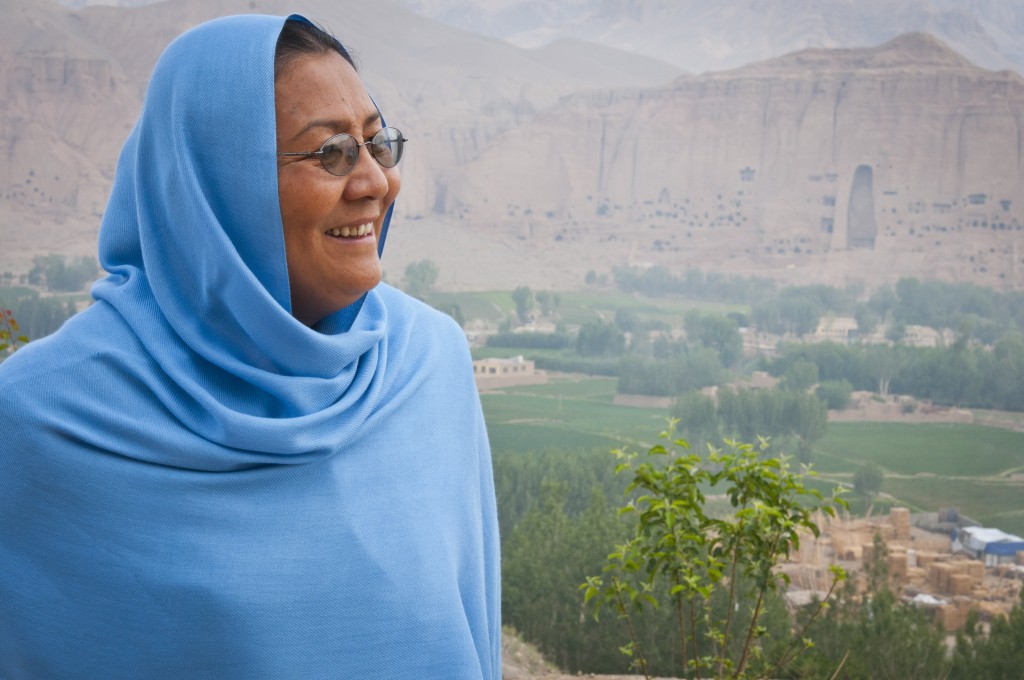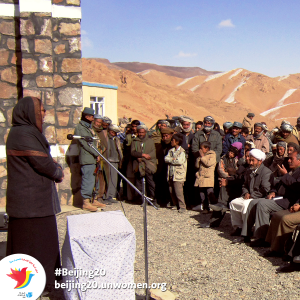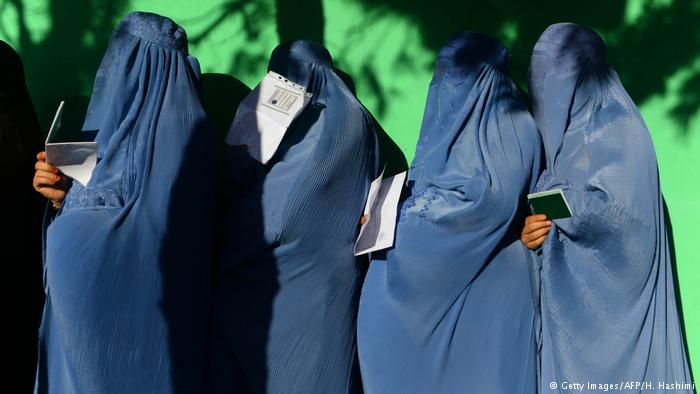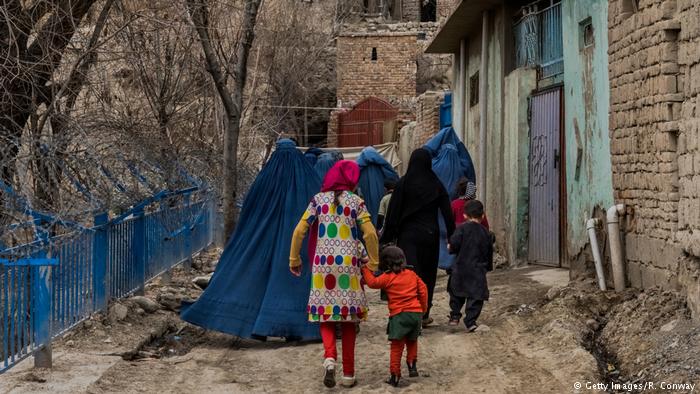Afghanistan: In The Midst Of War, A Women’s Rights Warrior

Bamyan Governor Dr. Habiba Sarabi stands on a patio overlooking the Bamyan river valley where the ancient standing Buddhas of Bamiyan statues used to reside in two giant insets, one of which can be seen here, June 18, 2012. Sarabi is the only female Afghan provincial governor in history.Since becoming a Governor, Dr Habiba Sarabi has efficiently governed Bamyan and used this platform to promote the rich cultural heritage of the province. © Ali Sher
Born in the mid-50s in Mazar-i-Sharif, a cultural and religious site in Afghanistan with famous shrines that get thousands of visitors annually, Dr Habiba Sarabi’s childhood was similar to that of many girls in her country. She grew up in a lower middle class household where money was tight, and her father preferred her brothers. She had to work twice as hard to show that she was capable of doing as much as them, if not more. However, she received positive support from her relatives, who encouraged her to continue her studies. Her hard work paid off, leading her to study medicine in the capital city of Kabul. With a fellowship from the World Health Organization, she moved to India to complete her studies in haematology.
In Afghanistan, a country steeped in tradition and years of conflict, Dr Sarabi went on to become the country’s first female provincial governor, appointed by the then President Hamid Karzai in 2005. She governed Bamyan and used this platform to promote the rich cultural heritage of the province. In fact, Time Magazine recognised her as a hero of the environment for her work in establishing the Band-e Amir National Park in the province.

Having overcome tough odds to gain an education and after spending several years in exile during the Taliban regime, Dr Habiba Sarabi went on to become Afghanistan’s first female provincial governor in 2005. © Sgt. Ken Scar (U.S. Armed Forces) via Wikimedia Commons
Her success comes in spite of the personal instability and insecurity she faced in her war-torn country. Like many, she was forced to flee to Pakistan in 1996 during the Taliban regime, taking her children with her, leaving her husband behind with the rest of his family. In Pakistan, she turned her passion into a job and thus began her long tryst with women’s rights. A fervent advocate for girls’ education, she started secretly teaching in refugee camps. Soon after, she was selected to be the General Manager of the Institute of Learning in Karachi, and also the Vice-President of Humanitarian Assistance for the Women and Children of Afghanistan, a civil society organisation.
On returning home, she took advantage of the opportunities of a new quota system to increase women’s political representation, and was appointed to serve not only as the first woman Governor of a province, but also as the Minister of Women’s Affairs and the Minister of Culture and Education, positions in which she continued her advocacy for women’s rights. Today, she is the Advisor on Women’s Affairs and Youth to the Chief Executive Officer. Though she works long hours, and things are never really easy, she says she owes her success in part to the fact that she has always had the support of her husband, whose own progressive views influence their three children, two sons and a daughter.
(This article is part of U.N. Women’s Empowering Women — Empowering Humanity: Picture It! campaign in the lead-up to Beijing+20.) © Women’s Feature Service
Editor: Marjory Linardy
WTO RECOMMENDS
How Afghan women are dissuaded from asserting their rights
Deeply engrained social norms along with allegations of corruption and lack of professionalism are hindering access to justice for Afghan women victims of violence, a new UN report finds. DW examines. (From April 24, 2015)
Rise of Afghan Women
Afghan citizens want more empowerment and a say in how they will run their country. They are now eagerly waiting for the results of the presidential elections to emerge. (From June 25, 2014)
Attacks on Afghan women surge
Women’s rights in Afghanistan are being dealt a serious blow considering that foreign troops are moving out of the country this year. Watch this report to know more about what the government is doing and how women
are coping with the situation. (From Januar 8, 2014)
http://blogs.dw.com/womentalkonline/?p=14499 http://bit.ly/1K1Nszy






